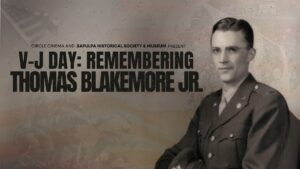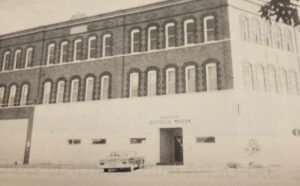Rachel Whitney, Curator,
Sapulpa Historical Museum
This week in Sapulpa history, on February 12, 1938: “Jury Convicts Wilder and 2 Others: Creek County Sheriff Found Guilty on First Count of Liquor Conspiracy.”
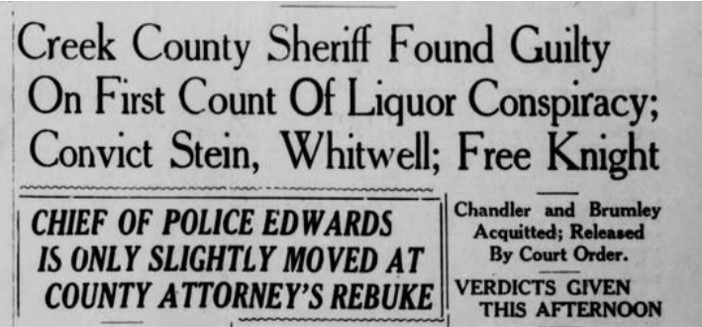
County Sheriff Lew Wilder, Harry Stein, and John Whitwell were convicted in the indictments involving “making and selling booze.” James Knight, a former special deputy under Wilder, was acquitted of his charges. “The first count of the indictment involved the alleged conspiracy as it pertained to the manufacture and sale of non-tax paid whisky. The second count dealt with the sale of tax-paid liquor.”
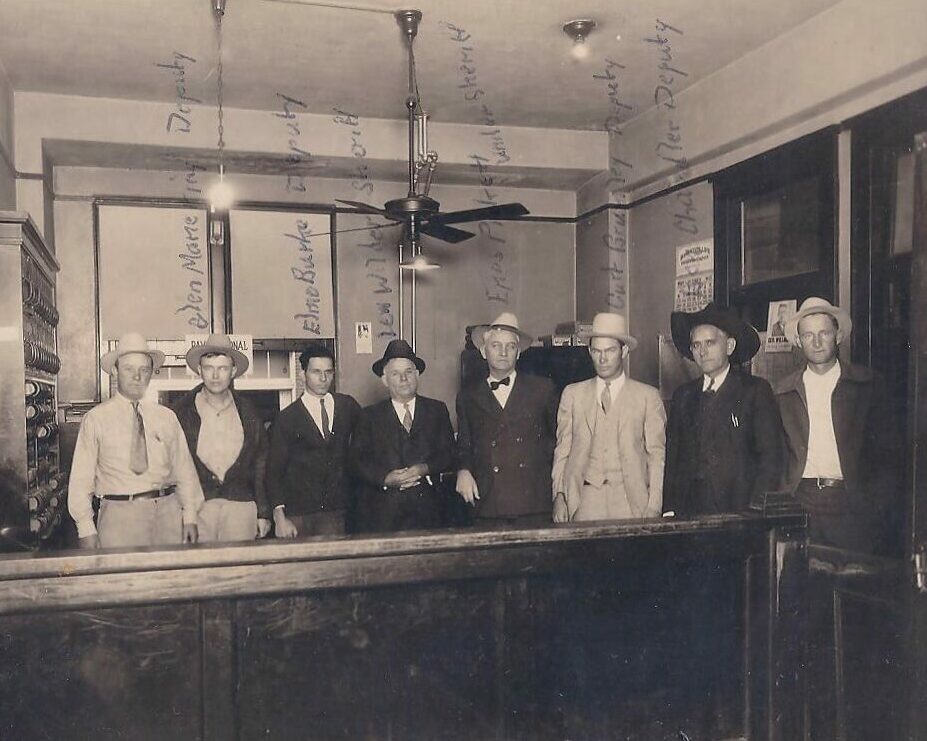
Wilder, who had taken office in January 1935, “was held guilty on the first count of a federal grand jury indictment charging conspiracy to violate the government’s liquor revenue laws.
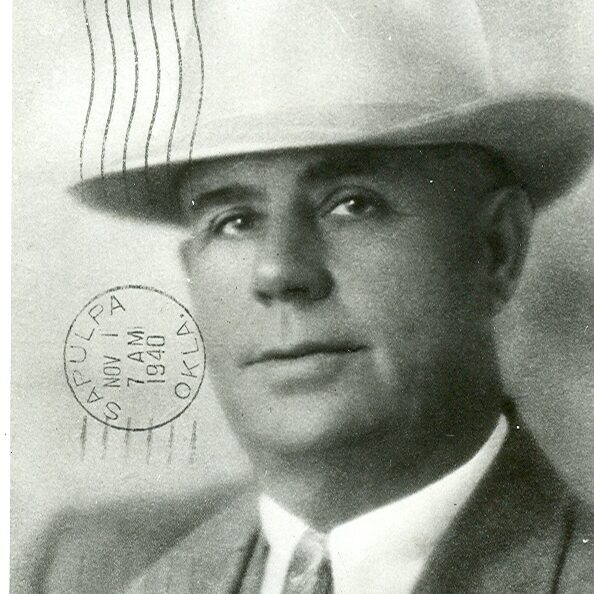
Stein, dubbed the “‘collection man’” in the papers, was “in the purported liquor conspiracy, and was held guilty on both counts of the indictment when the jury brought in its verdict.”
Whitwell, a former liquor dealer in Sapulpa, “was convicted on the second count of the indictment.”
On the same day of this conviction, Chief of Police J. Edwards received a letter of concern about the “lax enforcement of city liquor laws.” A letter from the County Attorney, Everett Collins, had asked for a report on the “alleged failure, or indicated failure to enforce city laws pertaining to sale of liquor.” The letter also indicated that the Attorney wanted a full investigation “into liquor conditions in Sapulpa and Creek County.” The letter stated:
Edwards responded with his own quotes from the “trial of alleged liquor conspiracy cases involving Creek County,” stating: “‘When asked on the witness stand if it wasn’t common knowledge that liquor laws were being violated, I answered ‘Yes,’ but I didn’t say we were not trying to enforce the ordinances. I have never denied that liquor was being sold in Sapulpa. There always has been and probably always will be violators of that law. I am going to enforce the law to the best of my ability. I have never refused, where there was evidence showing liquor being sold, to enforce the law, and we’ll keep on trying to enforce the ordinances.”
According to police court records in 1937, “458 drunks were hauled into the City Court, 25 for driving while drunk, and 13 persons convicted on possession of liquor.” The special investigator read to the jury “a list of liquor cases filed in Creek County since Wilder took office. It showed that many cases were dismissed and that many defendants received 30 days in jail and $50 fines (just over $1,000 now).”
The trial also included four other people in the liquor conspiracy. The Federal Judge Murrah dismissed the charges against these men, however. The jury began their deliberations over the fate of the Creek County Sheriff Lew Wilder and the three others; sentence day would be March 4.
Just two days later, the headlines read “Lew Wilder Back on Job as Creek County Sheriff,” and “Chief of Police not to Answer Collins Note.”
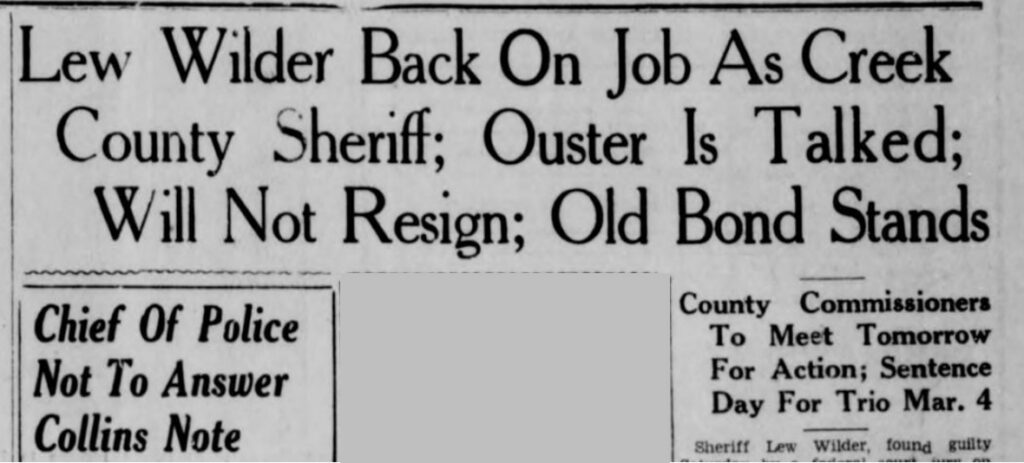
Wilder stated he would not resign from his office; he planned to “take every legal step entitled to him to fight the case.” It was stated, however, that a potential “ouster proceedings,” or dismal hirings, may follow up.
“Both County Commissioners, Charles Dressler, of Drumright, and George Willibey, of Sapulpa, stated that they knew nothing of any action being taken to remove the Sheriff.” However, Collins “revealed that he was drawing up a brief on the law as regards an ouster action relating to the Sheriff.”
Edwards made the decision about Collin’s note. “Chief of Police Edwards stated he was not going to answer the letter from Collins, requesting a report of alleged failure to enforce city laws pertaining to liquor sales.”
In April, Wilder and Stein were both sentenced to one year and a day in prison. They were also fined $1,000 each (just over $20,000 today). Wilder stated he would repeal the sentencing. Just weeks later, the County Commissioners voted to hold ouster proceedings on Wilder.

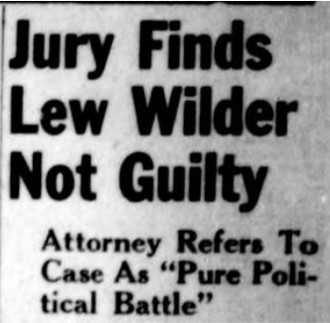
By early June, however, headlines read, “Jury Finds Lew Wilder Not Guilty.” Sheriff Wilder was reinstated as sheriff when the jury in the ouster proceedings found him not guilty. “The court had instructed the jury that a nine to three vote would be sufficient to reach a verdict. The first vote taken as soon as the case went to jury was eight to four for acquittal. The final vote was unanimous.” This was only on the county proceedings; it did not free him from the conviction of conspiracy charges.
By November, a new trial was ordered by the US Court of Appeals in Denver in this case. The court held that the County officers did not bear any official duty to enforce government internal revenue laws. And in January 1939, after a wild year for Wilder, the case was dismissed for the liquor conspiracy charges against Sheriff Wilder, Stein, and the other defendants.
In October 1937, after over a year of investigation of the “whisky ring conspiracy” a total of 20, including Collins, were indicted and nearly all were dismissed, acquitted, fined, and freed.



